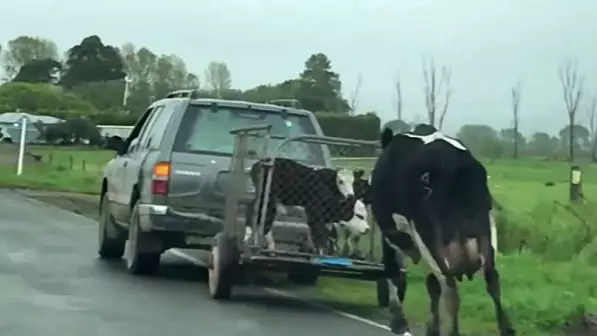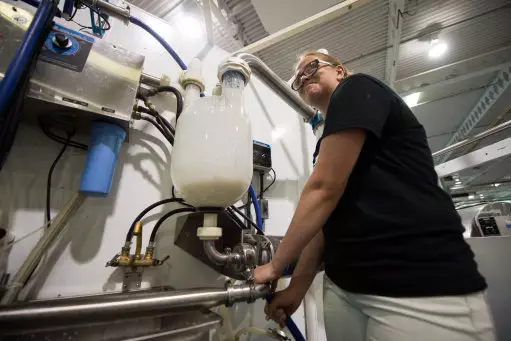
Having your family taken away from you right before your eyes is a heart-breaking prospect, no matter what species you are.
That's been highlighted by a video doing the rounds online in which a mother cow chases after her calves as they're driven away from her.
The footage, released by the animal welfare organisation Safe (Save Animals From Exploitation) shows the mother cow trotting behind a trailer.
Advert
She sadly fails at reuniting with her children as her calves are in a cage on the trailer, which is being pulled by a 4WD car. If that doesn't hit you right in the feels, I don't know what does.
According to Safe, cows react in the same way when they are removed from their children as a human being would be - that is, badly.
The organisation states that cows become distressed when they are separated from their offspring.
However, doing this is common in the dairy industry to reduce the risk of diseases being transmitted between cows.
Advert
The RSPCA says that cows are also often detached from their young to regulate their feed intake once they have received enough colostrum.
A simple way of describing colostrum is 'first milk' - the first milk that a new mother produces which transfers vital antibodies to the baby.
Separating cows upsets both the baby calf and the mother, hence why it is often performed as early as possible after the calf's birth.
Currently, it is standard practice in the dairy industry to separate calves from their mothers just twelve hours after they are born. That's barely any time at all to get to know your mum.

Credit: PA
Advert
"Separation within 24 hours of birth interferes with the development of the cow-calf bond and thus reduces separation distress," Safe's website states.
"Cows will show a strong response (calling) if their calf is separated at an older age, e.g. four days after birth, compared to separation at one day or six hours after birth."
Research has found that separating the calf after two weeks with its mother was more stressful than separation after one day - as you would expect.
Parents and kids feeling upset when they're apart is not the only similarity that cows have with human beings.
Advert
Calves who grow up with their mothers are known to be better socially, engaging in lss erratic behaviour.
They also generally gain more weight and have better health with lower disease and death rates - exactly like most human kids.
The dairy industry poses a dilemma as people eat beef and drink milk knowing that behind the scenes, separations like these are all too commonplace.
This video shows that when it boils down to it, many animals really aren't that different from us.
Featured Image Credit: SAFE NZTopics: Feels, Animal Welfare, Community